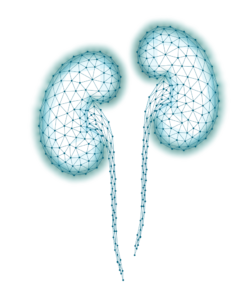
Think you need a urologist? Contact us to find out.
Urology is a part of health care that deals in diseases of the male and female urinary tract (kidneys, uterus, bladder and urethra).
In the field of urology and regenerative medicine, California Stem Cell Treatment Center stands as a beacon of innovation and progress.
Under the guidance of renowned urologist Dr. Elliot Lander, we are forging a path toward transformative healthcare solutions.
The primary goal of our organization is to provide cutting-edge stem cell therapy technology.
By providing a compelling alternative to conventional surgical methods, we aim to revolutionize patient care.
As we embrace stem cell advancements; we at CSCTS are enriching your patients’ lives.
Urology Breakthrough … Join us in reshaping the future of with cell therapy.
Bladder issues, pelvic pain, inconveniences in the bedroom and other urologic symptoms aren’t just embarrassing and uncomfortable.
They can be potentially worrisome.
If you have concerns related to your urinary tract or sexual health, your first step may be to see your primary-care provider.
But if the issue requires further evaluation or treatment, the primary-care provider may refer you to a urologist.
What is a Urologist?
A urologist is a specialist who provides medical treatment to both men and women experiencing these problems:
- Bladder
- Kidneys
- Urinary system
- Reproductive systems
At California Stem Cell Treatment Center, our urologist will review your symptoms, ask about your health history and perform a complete physical exam.
Depending on symptoms, we may order blood or urine labs, imaging studies, such as computed tomography ( CT) scans, or perform diagnostic procedures. says Dr. Elliot Lander, a urologist at California Stem Cell Treatment Center.
When to schedule to see a Urologist
Here are six signs you should consider scheduling an appointment with a urologist:
1. Urinary tract infections (UTIs)
Women who experience recurring UTIs (two or more infections in a six-month period or three or more episodes within a year) may be referred to a urologist for further evaluation.
For men, urinary tract infections are considered somewhat complicated and should be evaluated by a urologist.
2. Incontinence issues
If you’re experiencing urine leakage or the need to go frequently or urgently, a urologist can help.
In many cases, lifestyle changes, can improve your bladder symptoms.
 3. Pelvic pain
3. Pelvic pain
Pelvic pain that doesn’t go away is not normal and should be evaluated by a
doctor.
Unexplained pelvic pain can be related to benign conditions or could be a warning sign of more serious diagnoses of the pelvic organs.
4. Kidney stones
Symptoms of kidney stones include:
- Sharp pain in the lower abdomen, typically on one side
- A burning sensation or pain while urinating
- Urinating (peeing) frequently
- Feeling like you’re urinating incomplete or in small amounts
- Urine that is brown, red or pink, which indicates traces of blood
- Smelly or cloudy urine
- Feeling queasy or nauseous due to the intensity of pain
- Signs of infection, including fever, chills and vomiting
“Any blood in the urine, in the absence of an infection, should not be ignored,” notes Dr. Lander.
5. Prostate problems
Men should see a urologist for issues prostate such as:
- Difficulty emptying the bladder
- A weak stream
- Painful urination
- Blood present in urine
These symptoms can be a sign of benign prostatic hyperplasia (BPH), also known as an enlarged prostate.
6. Sexual dysfunction in men
Urologists are experts in sexual and reproductive health for men, including treatment of:
- Low testosterone
- Erectile dysfunction
- Male infertility
- Vasectomy (surgical contraception)
Men, you need to stay up-to-date on prostate cancer screening.
Once it’s appropriate for your age, prostate cancer screening becomes part of your routine check-up with your doctor.
Men at high risk for prostate cancer, including African American men and those with a family history of prostate cancer or other cancers diagnosed at a young age, should talk to their doctor about screening starting at age 40.
Men at an average risk for prostate cancer should call their doctor about scheduling a screening at age 50.
Prostate cancer screening starts with a simple blood test to check PSA (prostate specific antigen) levels. If your PSA is elevated, your doctor will refer you to a urologist for follow-up screening.
It’s most important to have conversations about prostate cancer screening and detecting prostate cancer at earlier stages, even before symptoms are present.


